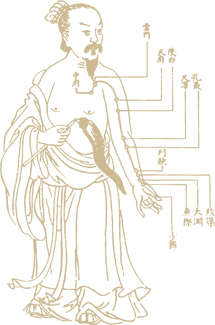
FAQ
Do you accept insurance?
Acupuncture is increasingly covered by insurance. We do not process the insurance claims for you but do provide you with a receipt after each session that contains all the information that is customarily requested by insurance companies in order for the insurance company to reimburse you directly (ICD9, CPT codes). Most of our patients receive some insurance reimbursement. It is completely dependent on your individual plan and you may want to call your provider before hand to determine the conditions and extent of your coverage for acupuncture treatment.
Are there side effects with herbal medicine?
Side effects are extremely rare. Using herbs in combinations often creates very balanced formulas, minimizing any unwanted effects. Furthermore, the herbs are digested more like food than pharmaceuticals. Occasionally one may have difficulty digesting a formula. This is most often easily remedied by modifying the way in which the formula is taken or by slightly modifying its ingredients.
What if I am taking medication?
It is very important to mention to me all the medications that you are taking and to keep me informed of any changes that may occur in your medications. Acupuncture is practically never contraindicated regardless of the medication. In fact, it is often a great way to mitigate some of the side effects of the medication. Herbal medicine is a more delicate matter. However, if the medications and the herbs are taken at different times in the day so that they do not combine in the gut there is almost never an interaction between the two.
Unfortunately, very little is known about drug-herb interaction and what we do know tends to be more hypothetical and theoretically based rather than actually clinically evidenced. Partly this is due to the fact that drug companies are the main source of drug studies and there is little financial incentive to conducting drug-herb studies. Most often when patients are warned to not take herbal remedies it is based largely on fear of the unknown rather than actual clinical facts.We should remember that a western drug is consider "old", that is time tested, when it is 5 years old. With Chinese Herbals we are dealing with individual herbs and formulas that are in many cases 2000 years old.
The ancients were also very aware of the issue of toxicity. This is evidenced by the numerous texts written on the subject throughout the centuries providing different methods of preparation of herbs (for example cooking in wine or frying in ginger juice) to reduce toxicity. In fact, the oldest Materia Medica (the Shen Nong Ben Cao), which was recorded in the Han Dynasty (221 BC – 206 AD) already divides herbs into those that can be taken for long periods of time with no side effects ("superior herbs") and those with possible toxic properties which should only be used for short periods ("inferior herbs"). Chinese herbal are arguably the most "e;time tested" of any medicine.
What are the Needles like?
Acupuncture needles are solid, stainless steel and no thicker than a few strains of human hair. They bear absolutely no resemblance to hypodermic syringes and are designed for painless insertion. Only the highest quality, pre–sterilized, disposable needles are used. Most insertions are very shallow, just beneath the skin. Sensations differ from person to person. Some people feel nothing at all, while others experience a temporary dull ache or a tingling sensation.